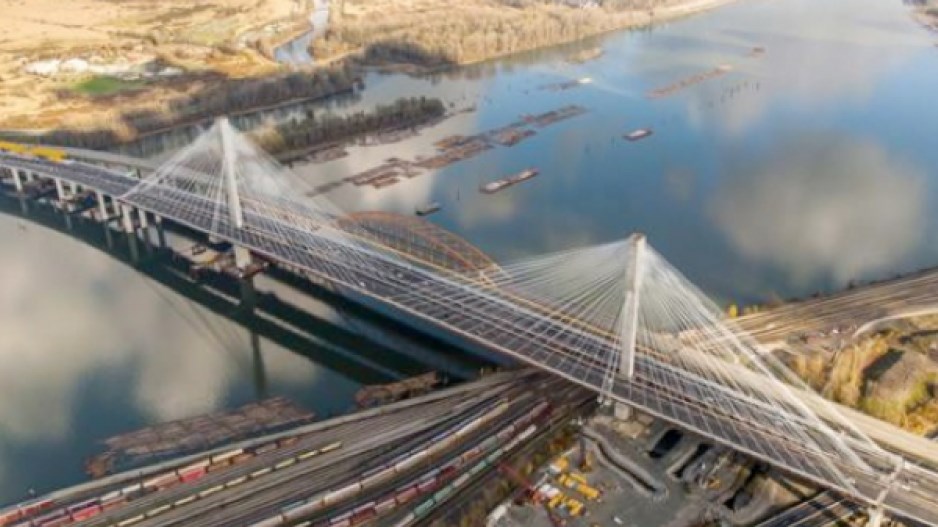By Peter Ladner
Kudos to Canada’s Ecofiscal Commission for pointing to a way past our region’s post-plebiscite blues. The non-partisan commission of leading economists released a report last week with a proposal to do what everyone in the region knows we have to do but no one is doing.
That would be reducing congestion not just by building new roads, bridges and transit.
The commission set online comment sections ablaze with a dare: see if tolling all the bridges and tunnels in Metro Vancouver would reduce congestion. Try a pilot project.
That would be a test of road pricing, long touted by the left, right and centre as the single best way to rationalize road use, so we can do more with the roads we already have, or, as the Ford ads say in a spray of delusion, “find new roads.”
The initial wave of rage is to be expected. People are wildly emotional when it comes to driving, which is still how most of us get around.
If we behaved in the rest of our lives the way we do behind the wheel, we would yell at people walking too slowly ahead of us on the sidewalk, then walk up close behind them to get them to move faster, then curse them as we passed.
We prefer congestion to tolling because the costs of congestion are diffuse (time lost in traffic, uncertainty, delayed trucks moving fewer goods, asthma deaths from exhaust fumes, family stress) while the hit from a toll is direct, personal and, for some people, visceral.
Believing we are avoiding taxes, we give preference to car driving, which is by far the most heavily subsidized form of transportation. We actually believe there is such a thing as free parking. We refuse to recognize road space as unpriced real estate. Some people will drive an extra 20 minutes to save a $3 toll. We believe that a new bridge is a long-term solution to congestion, when all the data says “not.” We can’t believe traffic “disappears” when infrastructure is removed, but it does.
It helps that voices from outside have kick-started the debate, with a pointed ask to the provincial government for a more results-oriented approach.
The province (under both NDP and Liberal control) has consistently kneecapped regional elected officials when they have asked for the tools to fix the congestion mess, whether it be a vehicle levy, a regional carbon tax, higher parking taxes or a piece of the provincial carbon tax revenue.
The latest blow, of course, is the premier’s insistence on another expensive, dysfunctional referendum for funding a specific class of transportation improvements, while all other projects sail through. Can her caucus really be behind her on this, catering to her core base at the expense of good governance?
Reducing congestion, regardless of how it’s done (adding bridges, transit, road lanes, high-occupancy toll lanes or tolls) will require new spending.
All a referendum does is ensure responsibility doesn’t land on the provincial government, exactly the people we elected to provide leadership.
Even if the premier thinks she can force the mayors into a property tax increase, it’s still a tax increase. It still comes out of the same pockets that would pay for road pricing. And as the Ecofiscal Commission’s report points out, what road pricing does, unlike property taxes, is immediately reduce congestion.
The province can allow a pilot project without breaking any referendum promises. See if it can be revenue-neutral.
Separate it from transit funding to avoid TransLink’s baggage. Keep all the emails describing exactly what the project costs, where the revenue was spent and how much was saved through the reduced congestion.
Copy Stockholm’s example and have a referendum after tolling has been set up and tested. It passed there.
Experience around the world tells us we can have either congestion or road pricing.
Pick one.
No abstaining.
Peter Ladner ([email protected]) is a co-founder of Business in Vancouver. He is a former Vancouver city councillor and former fellow at the SFU Centre for Dialogue. He is the author of The Urban Food Revolution.




